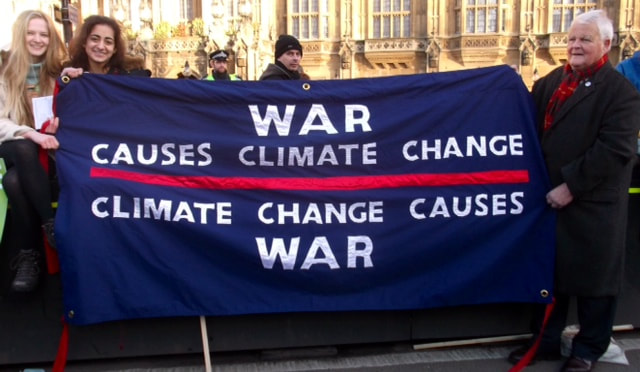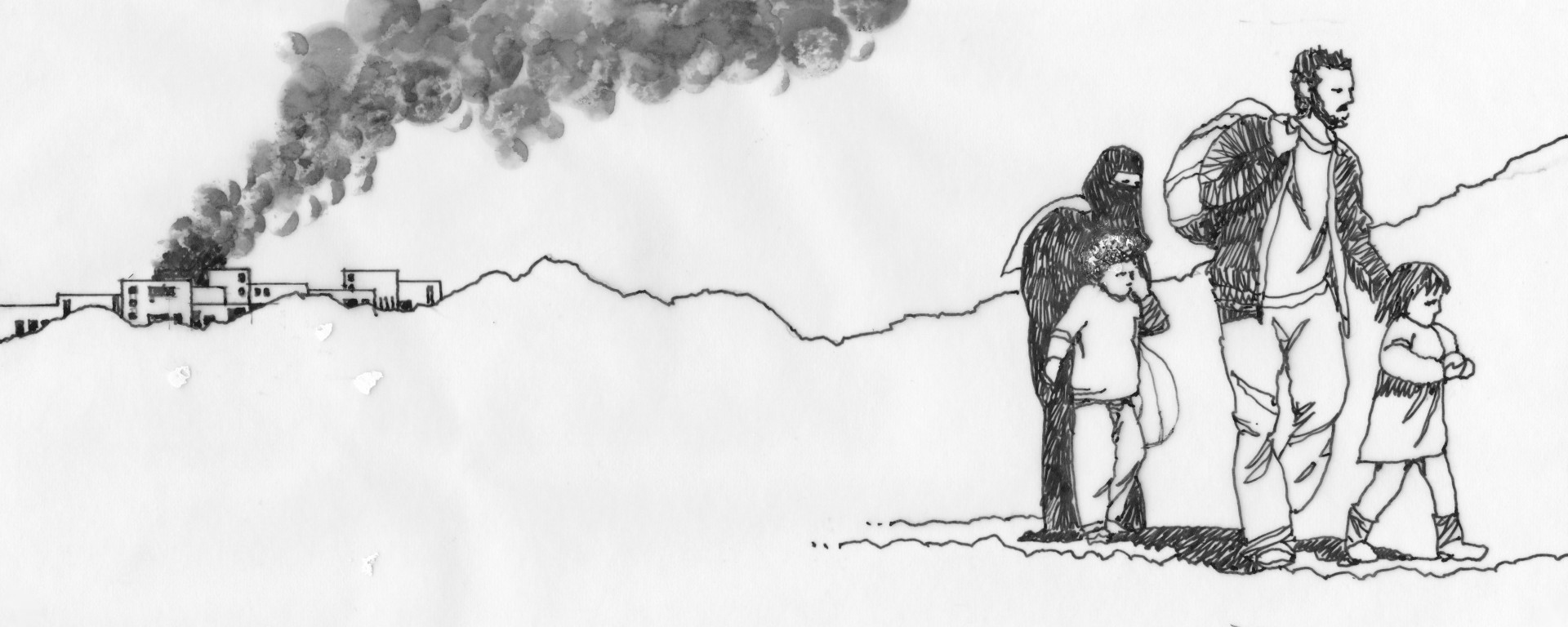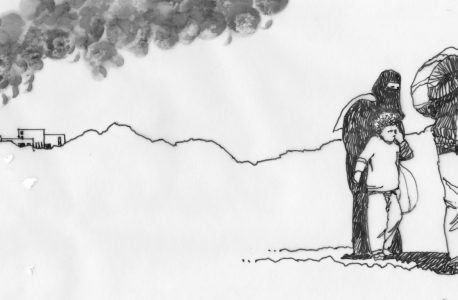Aim
- To push for inclusion of military-related emissions in the Climate and Ecological Emergency bill and at COP26
Download MAW’s COP26 leaflet – “WAR is bad for the planet too“
View MAW’s Conflict and Climate Change video, or buy the DVD and resource booklet.
Extinguish War and Save the Earth!
View the MAW cartoon on our YouTube channel here:
Did you know that the emissions and pollutants from the world’s militaries and resultant wars are not taken into consideration in any climate change talks? They were excluded in the 1997 Kyoto Climate Change Protocol and remain a secret. Militarisation and resulting wars cause untold pollutants and damaging emissions.
THEY MUST BE INCLUDED IN FUTURE CLIMATE CHANGE PROTOCOLS!
CAMPAIGN TO ENSURE THEY ARE INCLUDED IN COP26.
MAW will be in Glasgow to deliver our message –

MAW’s focus for the People’s Summit For Climate Justice, Glasgow 7 – 10 November
The UK Ministry of Defence is now taking the climate crisis very seriously and recognises that GHG emissions have to be reduced – and not only ‘estates’ emissions but ‘operational’ emissions too.
However, its plans for achieving this lie not in reducing warfare but in increasing the efficiency of the existing system: alternative fuels for war planes, low-carbon manufacturing methods in its supply chains, etc.
MAW would like to highlight alternative ways of reducing these emissions – by reducing warfare. The security which we all crave and which government sees as its prime duty, has much more to do with human and planetary well-being and with international co-operation than with military might.
This is a turning point – an opportunity to do things differently and more sustainably in all areas of life, so it is an ideal time to:
- question deep-rooted assumptions about the inevitability and acceptability of armed conflict as a way of resolving disputes
- honestly address the underlying causes of conflict with serious funding for non-violent conflict prevention and resolution
- curb the rampant excesses of the arms trade and enforce proper controls
- divert some of the trillions of dollars of global military spending into climate transition needs
- support and strengthen the UN, promote its ideals, respect international laws and treaties
Background: Climate Change Causes War and War Causes Climate Change
UN Secretary General sets the scene
The Secretary General of the United Nations has called climate change the defining issue of our time, stating that “almost every day we are confronted by its growing and increasingly pervasive effects. It is no coincidence that those countries most vulnerable to climate change are also liable to conflict and fragility”.
Examples of Conflicts caused by Climate Change
Some see the recent civil war in Sudan’s Darfur region as the first modern climate-change conflict. In 2007 the UN Environment Programme argued that desertification and dwindling rainfall had made supplies of food and water less secure, which may have helped spark the rebellion that Sudan’s government put down with a campaign of genocide and mass rape.
Between 2012 and 2015 it was argued that climate change had been a catalyst or even a primary driver of the civil war in Syria and the primary cause of the waves of refugees reaching Europe. The argument was that human emissions had caused or exacerbated a severe drought in Syria in the late 2000s that triggered mass migration from farmland into cities, contributing to tensions which ultimately led to an interminable war.
Lake Chad in the 70’s was once one of the largest fresh water lake in the world, an oasis and commercial hub in the arid Sahel – now it has shrunk to less than half this size, caused mostly by global emissions from countries many thousands of miles away. As the lake receded, animal herders, farmers and fisherfolk competed for access to the shrunken supply of water in temperatures of over 45C. Poverty and hunger encouraged thousands of young men to join Boko Haram and other terrorist organisations which continue to wreak mayhem in Nigeria, Niger, Chad and Cameroon.
The Dutch based ‘Water Peace and Security Partnership’, working with many other organisations, has reported that a third of the world’s people now live in countries that experience high levels of water stress, with droughts affecting around 50 million people, causing more than $5 billion in damage annually, with particular hotspots in Kenya, South Sudan, Zimbabwe, Iraq, Iran-Afghanistan border regions and Bangladesh, many of which have already suffered catastrophic conflicts.
Climate Related Risk Reduction spending is up to 50 times better value than military intervention says the UK government
A report by The Oxford Research Group has established that Ministry of Defence advice to policy makers is governed by the principle that even a 1% chance of a security risk materialising is unacceptable, and justifies more expenditure to “make us safe”, using the outdated mindset that military force is the principal safeguard against external threats. Yet the UK International Climate Finance (ICF), administered by three government Departments (former DFID now FCDO, BEIS and Defra), directly contradicts this strategy and states that “Investing our climate finance today helps reduce costs tomorrow. Every £1 invested well in climate-related risk reduction saves more than £3 (and up to £50) in avoided disaster impacts. Similarly, every pound spent cutting CO2 pays for itself between five- and twenty-fold by offsetting the future costs of climate change. ICF does this by building the resilience of the poorest people and communities. It supports countries to prepare for and adapt to climate change, improving how disasters are managed and reducing the harm they cause and the costs of responding”.
The modest outlays, based on the ICF model above, for preventative action to slow and reverse climate change, represent overwhelmingly better value for money than a securitised military approach that seeks to address only the symptoms of a changing climate in the form of increasing conflict across the Global South.
David Collins, February 2021
Campaign progress and news
- From COP28 to COP29
- The Glorious Art of Peace
- No matter how far HMS Queen Elizabeth sails, it won’t make Britain great again
- MAW Accreditation to COP26 in Glasgow
- Day Conference 2019: Save the Earth, Abolish War
- Conflict and Climate Change DVD and book
- “The Green Zone: the environmental costs of militarism” review
- Climate and Conflict, Dr Stuart Parkinson, 2008



